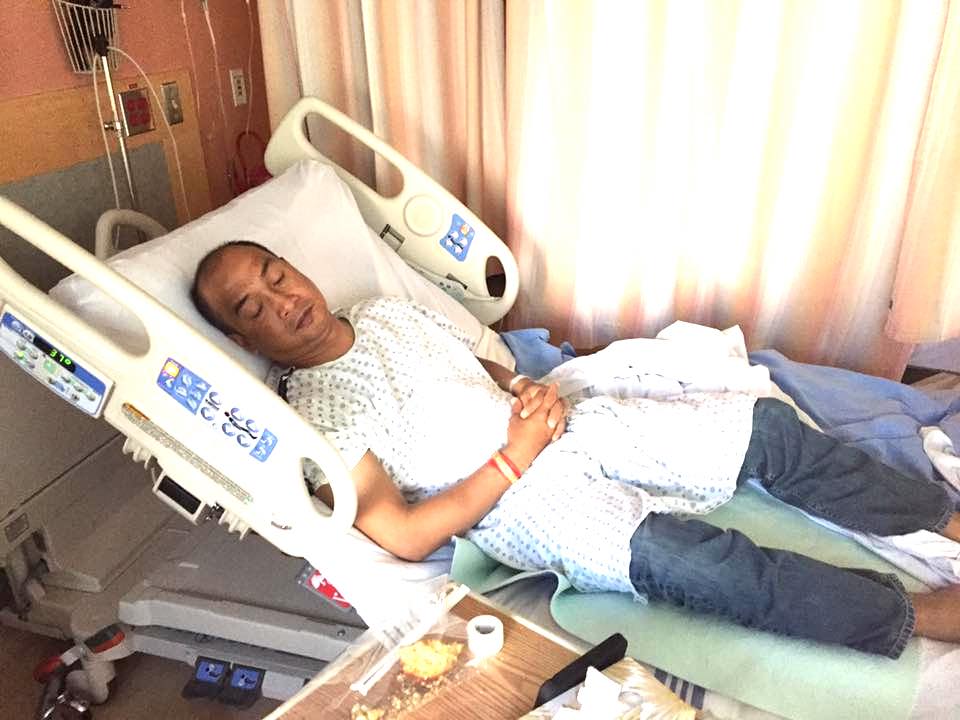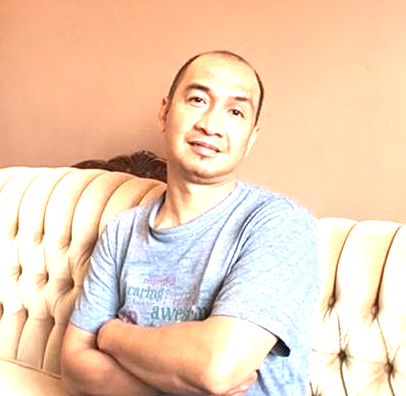Canadians rally behind ailing Filipino who needs medical care, permanent status
RED DEER, Alberta – The University of Calgary dormitory reminds Alfredo Aguilar, 45, of the days when he helped lay down its 54 concrete floors, along with other construction workers.
The building is only one of the many prominent structures Aguilar helped build. Back in the Philippines, he was a farmer from his hometown in Pangasinan.
It was in 2009 when he decided to try his luck in Canada and landed a job as a vegetable packer in Ontario. “I was supposed to work as a construction worker in Calgary, but because of the recession got moved to Ontario,” said the father of two boys.
In 2013, he decided to move to Alberta to take on a better-paying job in the construction industry. It did not take long before he was diagnosed with kidney failure a year later, which has cost him his job and now, possibly his life.
Meanwhile, a community of supporters is rallying to support his plea for status in Canada.
Costly treatment
The group, called Caring Canadians, was formed in August this year.
Calgary local and city researcher Bronwyn Bragg has spent the last five years working on immigration-related issues and with newcomer communities.
“I was contacted by a friend and community advocate who was working with Alfredo in August 2017. When I heard the decision to try and remove Alfredo from Canada despite his contributions to our country and his health conditions, I decided to get involved,” she said.
Like many foreign workers who have come to Canada to work, Aguilar was medically fit when he was hired as a vegetable packer for Armstrong Top Pack Ltd. in Leamington, Ontario. The job had a price tag of P41,000 monthly payment to a loan shark in the Philippines for eight months.
In Calgary, Aguilar worked as a laborer for NRG Concrete Specialist in 2013 until he was laid off in 2014 following his hospitalizations to treat his renal failure.
“My employer gave me the option to go back to the Philippines, or stay in Canada without a job,” he said.
Death sentence
Work for the concrete finishing company meant long and short hours, rain or shine. The workers also endure the cold winter months.
In June 2014, Alfredo went to Calgary’s Rockyview Hospital for hand swelling and pain. He returned after four days without improvement. This time, his illness turned out to be kidney failure at a stage so advanced that he had to be transferred to a tertiary level hospital at the Foothills Medical Center.
“I could not accept my fate. It took me a few days before I got convinced by the staff to consent to a (urinary) catheter,” he said. To facilitate dialysis, a permanent access through an artery and vein in his arm was done.
Aguilar recalls the doctor telling him he had only one year to live if he doesn’t receive the appropriate treatment, which meant regular dialysis and an expensive drug that stimulates blood-production in the body.
“How could I possibly choose to go back to the Philippines when it means death sentence?” he said.
Community support
“Caring Canadians is a group that formed in solidarity with Alfredo Aguilar. We believe he has the right to remain in Canada and should be granted permanent residency,” said Bragg.
The group is composed of university professors, social workers, Filipino Canadians and other migrant rights advocates. “Our goals are to support his application for PR, to secure continued treatment for his health issues. We also have the goal of raising funds and awareness about his unfair situation,” she added.
Caring Canadians have been working with the province’s health service arm to ensure Aguilar’s continued treatment. The group has also launched a fundraising campaign to support his basic needs.
Bragg believes “that temporary work programs are inherently exploitative and unjust.” “Canada has a long history of immigration. There is no reason why only some people who come to Canada should be granted the right to remain permanently while others are only allowed to work here and then must return home,” she explained.
“As someone who has worked closely with migrant workers for several years, I can say that I have yet to meet someone who has come to Canada as a temporary resident who does not have plans to stay in Canada,” she said.
“That is not because they hope to cheat the system, but rather Canada is not very clear with people who enter as temporary workers, and does provide some pathways for them to become permanent residents,” she pointed out.
Foreign workers are given false hope that they will be able to stay in Canada and one day bring their families here, said Bragg.
“I see this as Canada wanting to have it both ways — have labor to work jobs that Canadians would prefer not to do, but not give people access to legal status in this country,” she added.
Sympathetic circumstances
Alfredo’s case has rippled across the migrant rights community that Canadian immigration lawyer Juliana Cliplef volunteered to take it on pro bono.
The lawyer, whose practice traces back to volunteering at pro bono immigration law clinics during her law school days, offered her services in October.
Cliplef had observed that although advocacy groups and individuals in the community were supporting Aguilar, he had yet to receive the support of a lawyer to help him with his immigration matters.
“Canada’s immigration system can be difficult to navigate without qualified immigration assistance, and so when I heard that Mr. Aguilar had already had two immigration applications rejected, in spite of his sympathetic circumstances, I believed that there was an opportunity for me to make a difference in the outcome of his case,” said Cliplef.
Cliplef noted that since Aguilar’s employer abandoned him and his work permit was tied to that employer, the Filipino worker’s position has been “incredibly precarious.”
“Currently, Mr. Aguilar is not allowed to work in Canada, which means he cannot provide support to his family back home or contribute towards the cost of his own medical and living expenses, despite the fact that he is physically capable of working and wants to do so,” she said.
“Although he is healthy enough to work, forcing him to return to the Philippines in his current condition would be a death sentence as he would not have access to the same type of community supports and medical care that is available to him in Canada,” she added.
Reunification
Cliplef believes that pathways to permanent residence should be made available to those who choose to settle here and make Canada their home.
Hence the plan for Aguilar is not only for short-term but also for long-term in that he would be able to sponsor and reunite with his family, if he secures permanent residence in Canada.
Meanwhile, a plan to file an application for a temporary residence permit and a work permit will be in place so that if granted, Aguilar can start working again while he continues to receive regular dialysis treatment.
Following this will be an application for a permanent residence on humanitarian and compassionate grounds, said Cliplef.
“If the application is successful Mr. Aguilar will qualify to be placed on the organ transplant list. If a suitable donor is found and he is able to receive a new kidney his long-term health and life expectancy will improve dramatically,” she said.
For his part, Alfredo longs for the day that he will finally reunite with his family. “My wife tells me to keep fighting and so I stay.”#
For those who would like to donate, please visit Alfredo Aguilar’s YouCaring webpage: https://www.youcaring.com/alfredoaguilarjr-962437



